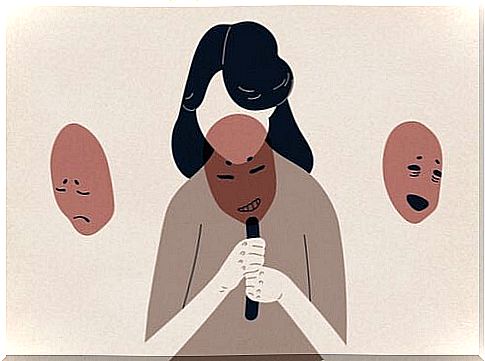6 Attitudes That Separate More Than Distance

Being physically separated isn’t the only way to find ourselves away from the people we love. Sometimes, even being a few millimeters apart, we can feel like the people around us are missing. In relationships, connection is not only nourished by physical proximity: it also needs exchanges of affection, gestures and intentions. It is therefore important to pay attention to certain attitudes that can separate rather than unite.
You should know that this kind of psychological distance that we can feel can be the result of difficulties and problems personal or coming from other people. It is therefore fundamental to ask ourselves how we are doing and to get more information. Regardless of this fact, these situations make us suffer. Let’s explore this idea further.
What causes us to distance ourselves from others?
Since we are beings with social tendencies, only problems of a psychological nature can make us want to be away from others. If someone constantly rejects the company of other people, it is because they are probably suffering from difficulties that we do not realize. Pathologically, depression can be one of these causes. In this case, only a specialist can help the person who suffers from it.
On the other hand, there are other attitudes, reflections of psychological traits, which also determine how people distance themselves . Even if they do not constitute pathologies, these attitudes also interfere with the correct functioning of interpersonal relationships. Let’s study them in more detail.

Egocentrism
According to the dictionary, egocentricity is “the exaggerated exaltation of the personality, to the point of considering it as the center of attention and general activities”. Self-centered people neglect the interests and desires of others because they see them as inferior to their own.
Therefore, these people do not pay attention to other people’s problems and do not fix their attention on them. It is difficult to dialogue with egotists because they will deny the existence of any personal problem. On the contrary, they will tend to identify the problem of those who talk to them about their concerns. This will often lead to separation, both physical and emotional.
Abuse
In this case, the toxic attitude exhibited by the abuser is reflected directly on the victim. Abuse is defined as “treating someone badly, with words or deeds”. It refers to the negative psychological consequences suffered by the abused person. She sees how far the other is moving away from the image she had formed in her mind. This, in turn, moves away psychologically from the abused person because he does not take into account his feelings, as if it were an unimportant object.
Despite everything, this case is quite special. Because if the behaviors and attitudes of the abuser establish a distance from the victim, there is a kind of manipulation that prevents, most of the time, that the separation takes place. We can, however, say that this type of relationship is a complete departure from a conscious, emotional and healthy bond between two people.
Contempt
Directly linked to abuse, contempt manifests itself in various ways. For example, through excessive sarcasm which, behind humor, conceals an intention to hurt the other. It normally results from a feeling of superiority (usually intellectual) of the one who despises.
In fact, contempt can be defined as a “disdain” or a “detachment”, that is to say a position of estrangement from the other. It is therefore one of the attitudes that separate more than distance. Treating others as if you were superior is indeed a form of rejection.
The lie
It is one of the most common and seemingly harmless attitudes that separate more than distance. To lie means to hide and distort reality. Put on a mask to cover up something that for some reason we don’t want to show.
How are we going to trust a person who is lying? How are we going to impart confidence if we are lying? It is normal for lies to distance us from others. It is a boycott of sincerity that damages any attempt to connect with others. By lying, we are not allowing others to know us.

Victimization
This attitude is incredibly harmful to relationships. Not only because it dilutes the meaning of the term “victim”, causing real victims to lose credibility, but also because we throw on others a sense of guilt that is not necessary.
Victimization is a form of self-deception and proof that we have poor self-regulation skills and emotional responsibility. These people use complaints and criticism to survive, blaming others for their unhappiness or other negative feelings.
Manipulation
In connection with contempt and abuse, manipulation results from a supposed intellectual superiority. Manipulative people claim to influence the attitudes of others for their own benefit. However, when those around them become aware of their practices, a deep rejection erupts.
As we can see, all these attitudes that separate more than distance are harmful to the proper functioning of interpersonal relationships. We must therefore learn to identify them if we are to have healthy and successful relationships.










